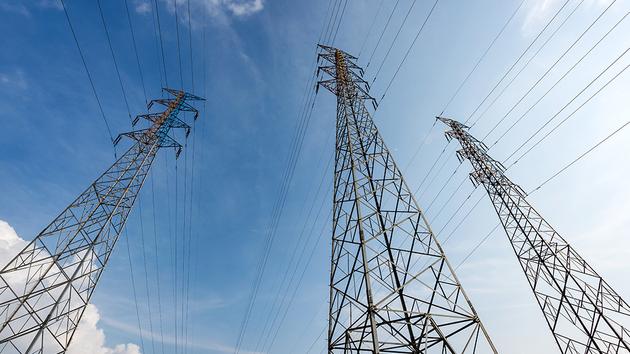How to “Clean” the Air in the Capital City – Can Belgrade Follow Warsaw’s Example?
Source: eKapija
 Tuesday, 19.03.2024.
Tuesday, 19.03.2024.
 09:33
09:33
 Tuesday, 19.03.2024.
Tuesday, 19.03.2024.
 09:33
09:33
(Photo: Pixabay/SD-Pictures)

The city is Warsaw, one of the most polluted cities in Poland, which, together with Krakow, Wroclaw and other Polish cities, has reported record-breaking levels of pollution in the past period. At certain stations over there, the smog would exceed the allowed values 3 to 7 times, and there were even appeals by the authorities for the citizens not to go outside unless absolutely necessary.
As reported at the time, the Warsaw Smog Alarm organization would say that, every year, around 3,000 residents of Warsaw died too early from the consequences of diseases caused by polluted air, exceeding the number of people killed in traffic accidents each year in Poland.
After that, certain public personalities in Poland also sued the state because, as the media reported, it jeopardizes their health and does little to reduce the pollution. And then the first collective lawsuit of 223 Polish citizens was filed against the state of Poland. They demanded that the government admit the responsibility for the smog and polluted air.
The extent to which air pollution is related to diseases and mortality is also shown by the previously published data of the European Union, which say that, on average, air pollution contributes 4-19% to the overall premature mortality. Furthermore, as estimated, coal-based thermal power plants in the Western Balkans are responsible for economic damage based on health costs, which amount to EUR 1.2 to 3.4 billion a year.
Whether due to the truly high costs of treatment and the increased mortality due to pollution, but Warsaw adopted the decree last October which has, apparently, improved the air pollution situation.
– In October, in Warsaw, the local ban on the use of coal in households came into effect. It is important to say that the ban does not take the form of a penalty. Instead, the residents expressed their opinions about it in a survey and the ban was supported by 74% residents of Warsaw. The mayor of Warsaw devised a plan and offered subsidies of up to EUR 15,000 to residents. Special accent was placed on heat pumps and increasing energy efficiency. The result is such that, as soon as this winter, a drop in pollution was visible. In addition to providing them with a cleaner air, these measures have also saved money for the citizens. On average, the energy costs of a household have dropped as much as 27%. And the most important thing is that the number of hospitalizations and premature deaths has reduced – Bojan Simisic, the president of the “Eko Straza” Association, claims in a statement for eKapija.
He says that, this way, Warsaw complied with the EU law for the first time.
– Although the World Health Organization has lowered the threshold for the average annual concentration of PM particles from 10 to 5, in the European Union, those values are still at 20, but they are also now lowering them to 10 – Simisic says.
This winter, Warsaw achieved values below 20, and according to our interviewee, values below 10 will be difficult to achieve for many.
– The average concentration of PM particles in Belgrade ranges between 20 and 25, depending on which year we are observing. That is why we have now launched a campaign in which we want to collect, for a start, 10,000 signatures for the abolition of mazut and fuel oil by 2025. We believe that no sudden drastic change is good and that, through such smaller steps, we can achieve more. We are a step away from having enough signatures and when we collect them, we will hand over our request to the Ministry of Mining and Energy and the Ministry of Environmental Protection – adds Simisic.
According to him, the problem in Serbia is that even the measures that are adopted are not implemented.
– For example, the government has adopted the Air Quality Plan for 2022-2030, but that plan is not implemented, because the Ministry of Finance is not setting aside money for the implementation of that document. There are some projections according to which, in our country, the pollution would reduce by a third if only the existing acts were implemented – says Simisic.
Our interviewee also believes that giving subsidies to households would eventually pay off for the state.
– Unfortunately, oncology diseases are frequently mentioned as a consequence of air pollution, but in fact, heart diseases are the most frequent consequence. When all the treatment, sick leaves and other similar things are calculated in, it is certain that all the subsidies would return to the state in five years – claims Simisic.
According to him, Belgrade is not even the only noticeably polluted city in Serbia. Since the measuring stations were installed in some smaller cities, it has turned out, according to our interviewee, that Novi Pazar, for example, is one of the 40 most polluted cities in Europe, and there are also Valjevo, Uzice and Nis.
And the other numbers cited on the “Eko Straza” website are unforgiving too – 15,480 people in Serbia die from pollution each year, the 18 thermal power plants of the Western Balkans pollute more than the 250 thermal power plants of the EU, Serbia is no. 1 in Europe when it comes to pollution according to a report by GAPH, and the quantity of PM2.5 particles measured by “Eko Straza” is 47 times higher than the allowed maximum (as per the WHO).
Our interviewee believes that this petition, that is, the filing of the request for the shutting down of boiler rooms which use mazut and fuel oil and the final ban of the use within 18 months, is the first of the significant steps thanks to which Belgrade can be like Warsaw too as soon as next winter. Not just Belgrade either, but all other places in Serbia too.
He reminds that everybody interested in signing the request can still do so HERE.
D. Stanimirovic-Gavrilov
Companies:
Eko straža
 Ministarstvo rudarstva i energetike Republike Srbije
Ministarstvo rudarstva i energetike Republike Srbije
 Ministarstvo zaštite životne sredine Republike Srbije
Ministarstvo zaštite životne sredine Republike Srbije
Tags:
Eko straža
Bojan Simišić
Western Balkans
World Health Organization
air pollution
air quality
European Union
Krakow
Wroclaw
medical treatment costs
economic damage
premature mortality
oncology diseases
cardiovascular diseases
use of coal in households
petition
campaign
request for shutting down boiler rooms using mazut and fuel oil
Warsaw Smog Alarm organization
Comments
Your comment
Naš izbor
Most Important News
Full information is available only to commercial users-subscribers and it is necessary to log in.
Follow the news, tenders, grants, legal regulations and reports on our portal.
Registracija na eKapiji vam omogućava pristup potpunim informacijama i dnevnom biltenu
Naš dnevni ekonomski bilten će stizati na vašu mejl adresu krajem svakog radnog dana. Bilteni su personalizovani prema interesovanjima svakog korisnika zasebno,
uz konsultacije sa našim ekspertima.


 Izdanje Srbija
Izdanje Srbija Serbische Ausgabe
Serbische Ausgabe Izdanje BiH
Izdanje BiH Izdanje Crna Gora
Izdanje Crna Gora


 News
News








